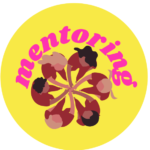 Perhaps you are recently retired and have some skills you would like to share or maybe you find yourself in a role that you are not prepared for, possibly “family caregiver.” These are two examples where mentoring could benefit you in your later years.
Perhaps you are recently retired and have some skills you would like to share or maybe you find yourself in a role that you are not prepared for, possibly “family caregiver.” These are two examples where mentoring could benefit you in your later years.
Mentoring is a win-win relationship between two people that is usually intended to assist the mentee to become more proficient in a new role, job, or even a craft. Mentoring is more development-driven, not just the “Job Function:” it goes beyond, taking a more holistic approach to the goal and its impact on all of life.
A coach is someone who is more performance-driven; there are circumstances where that might be the better choice. There are many crossovers between mentoring and coaching.
The mentor guides a less experienced person by building trust and modeling positive behaviors. Mentors are dependable, engaged, authentic, and tuned into the needs of the mentee. They respect confidentiality, manage time well, and also become your consultant and cheerleader.
As Aging Life Care Professionals®, we work closely with families who are experiencing caregiving and are often overwhelmed with the tasks at hand. In our mentoring, which is sometimes looked at as consulting, we help the new caregiver prioritize tasks and learn how to manage difficult behaviors brought on by dementia or other illnesses.
Once a trusting relationship has been established and the mentee or client has learned some skills that help them find a balance in their lives and deliver care without burn out, we then move to a relationship of consultant and are called in only when there are changes or stressors that need some guidance and/or modeling.
Those newly retired with skills to share can approach their professional organization and look for opportunities to mentor younger people coming into a new profession. There are also opportunities to mentor children in a variety of capacities – from reading to dealing with feelings, emotions, and life adjustments. Many religious organizations, as well as community groups, use mentors with those who are homebound and just need a cheerleader or someone who is a good listener. This is a great way to stay engaged in your later years and often an Aging Life Care Professional can help you find a place to share your skills at the same time as keeping you healthy and giving you a link for aging resources in the future.
To find an Aging Life Care Professional® near you or a parent, go to our new website AgingLifeCare.org.
About the Author: Linda Fodrini-Johnson, MA, MFT, CMC is a Fellow Advance Level Aging Life Care member. She is a licensed family therapist as well as a certified care manager. She is the past president of ALCA as well as a past president of the Western Chapter of ALCA. She has been honored with many awards for her leadership and mentorship in the organization as well as in her community. She owned a full-service care management business for 30 years, sold it in 2019, and now continues to do mentoring, consulting, coaching, and teaching in the San Francisco Bay Area. She can be reached at LindaFJ620@outlook.com